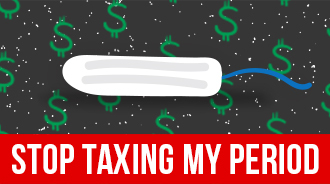-
Ban Retailers from Selling Plastic Cotton Buds in AustraliaPlastic cotton bud stems are the number one item of plastic, sewage-related debris on our beaches and rivers - yet retailers could help prevent this by switching the stick from plastic to paper. In the marine environment, plastics can be eaten by marine life, often with fatal consequences. Plastic is found in the stomachs of Loggerhead Turtles, Seabirds and many species of Australian-caught fish. And pieces that don't get eaten break down into microplastics, forming part of a dangerous plastic smog in our seas. Retailers are listening - major retailer Kmart sells Paper Stem Cotton Tips in their stores. Now we need to make sure the other retailers do the same. Even paper stem cotton buds shouldn’t be flushed down the loo. But if they are, they're less likely to pass through sewage filters and will quickly biodegrade if they escape. So please sign and share our petition to ask the remaining retailers to Switch the Stick from plastic to paper. Your voice will be heard! Thanks, Sophia and the Switch the Stick Australia team210 of 300 SignaturesCreated by Sophia Lacey
-
Stop the commercial mining and sale of Australia's Great Artesian waterSelling The Great Artesian water supply for commercial profit while the country shrivels and dies is not in any way aligned with providing water resources for the benefit of the majority16 of 100 SignaturesCreated by Bob Lee
-
Campaign for the removal of all gambling ads from Australian mediaRemove gambling enticement from young people Reduce harm done by people becoming addicted to gambling Improve the community in general We simply don't NEED gambling advertising, the industry does... and failure to remove it shows that our government is complicit in driving gambling addiction for profit.60 of 100 SignaturesCreated by Troy Love
-
No mobile phone tower in Sandown ParkSandown Park is a much loved Hobart recreational area. People come to wind down, walk their dogs, play some sport and to breathe the air. Telstra have decided to build a huge array of mobile phone antennae on an existing pole in the park relying on their own interpretation that this is low impact. They don’t want to ask the community what they think so the notice is buried in a small community newspaper. Please treat the community with respect, we care about the place we live in and the places we use to unwind in. Please don’t wreck our park. Note: No design or image of the proposed addition of 6 antennae on the pole has been provided so the third image is an example of a 6 antennae configuration. The image will be updated once provided by Telstra212 of 300 SignaturesCreated by Ruth Kearon
-
BUPA: Stop disadvantaging Defence personnel by restricting their choice of PsychologistBUPA's contract specifies an arbitrary distinction and significant rebate differential between sub-types of psychologists, while all other health professionals (eg. Podiatry, Physio, OT, Speech Therapy etc.) have one simple fee structure. For example, for a 51-90 minute consultation, psychologists with clinical, neuro or forensic endorsement are rebated $303.14 while all other psychologists (some with many years experience, ADF experience, certification in EMDR, Schema therapy etc) are rebated $164.83 for the same service. Interestingly, the Australian Psychological Society's recommended fee for psychological services is $254 for a 46-60 min consult. The rebate is significantly lower for most Psychologists (45% lower) and there will be a shortage of providers to service this population. Many psychologists are deeply offended by this baseless and unnecessary distinction and are doubtful as to whether they will continue providing services under this contract. There should be a single fee structure for all psychologists providing services to ADF personnel. Firstly, there is no research evidence that psychologists holding these endorsements are more effective. Secondly, a psychologist holding an endorsement does not necessarily hold any further qualifications or training than other psychologists. When the registration system for psychologists moved from the state-based systems to being federally managed by AHPRA, many members of the Australian Psychological Society were automatically endorsed in areas of their choosing (without holding the now required masters/doctorate degrees). Therefore, some clinical/forensic/neuro psychologists hold the same level of training and qualifications as ‘generalist’ or ‘registered’ psychologists. In fact, a large portion (65%) of psychologists (without endorsement) hold postgraduate qualifications such as masters, PhDs or training in particular techniques such as EMDR (the current gold standard treatment for veteran trauma). The quality, skills and knowledge of a psychologist cannot be deemed by endorsement status alone. According to data from the Psychology Board of Australia (as at 31 March 2019), there are 35 583 registered psychologists in Australia with 10 073 of these holding endorsement as clinical, neuro or forensic psychologists. BUPA's fee structure is sending a negative message to over 25000 psychologists, their families, staff and clients. Many psychologists are also BUPA customers and will likely reassess their health cover options in light of this issue. Psychologists tried to address this directly with the former contract holder Garrison Health/Medibank to no avail. BUPA then adopted the contract as is and continues to devalue many very experienced psychologists. We need the BUPA CEO and Minister for Defence to review this fee structure immediately and ensure that ADF funds are being used appropriately (as there is no evidence that endorsed psychologists provide better service or outcomes, how can the ADF ethically spend public money on rebating these psychologists 45% more than their colleagues).679 of 800 SignaturesCreated by Australian Psychologists
-
Employ More Staff in Centrelink to Reduce Wait TimesThe KPI for a claim for any type of Pension is 6 weeks. Because of lack of staff and a huge back-log this has now blown out to as much as 12 weeks and sometimes longer. This is even before you know if your claim will be accepted or not. Some people have the resources to cover this long wait, but many don't, which is why they are claiming in the first place. It is better for a person to be cared for in their own home, by a loved one rather than be a burden in either the hospital or aged care system. Adding financial stress to a Carers burden can definitely lead to a depressed mental outlook. Please sign the petition now asking the Federal Minister to Increase Staff in Centrelink so they can address all wait time issues.28 of 100 SignaturesCreated by Maryanne Watts
-
'Enough is Enough'….All consumers and psychologists in Australia deserve equal access to Medicare!The APS submission (https://www.psychology.org.au/About-Us/What-we-do/advocacy/Submissions/Professional-Practice/2018/APS-Submission-to-the-MBS-Review-Better-Access?) recommends that over two thirds of registered psychologists (many of whom hold higher degrees, specialised training and significant experience in their field) but have not applied for “endorsement” would only be able to provide services to the estimate 10% of clients presenting with mild to moderate disorders. The complicated model states that psychologists may be given an opportunity to “demonstrate equivalent competence” to be able to treat what is, for many, their existing client base. Recognition would almost certainly come at a significant cost. The APS has yet to explain just how this recognition would occur, leaving experienced practitioners at a loss as to how they can protect their livelihood and deliver crucial services to clients. All registered psychologists are currently permitted to practice across all areas of psychology and mental health and can diagnose, assess and treat clients, regardless of whether they are endorsed or not. Ethical guidelines require psychologists to only provide services within their limits of personal competence. Endorsed psychologists primarily operate in urban areas, while the majority of psychologists operating in rural areas are non-endorsed. Data from the Psychology Board of Australia’s ‘Area of practice endorsement data tables: January 2014’, shows that only 23 endorsed psychologists work in remote communities across Australia; 212 in outer regional; while 7 969 work in metropolitan/capital cities. Our rural areas have some of the highest rates of suicide in Australia. If accepted, the APS recommendations will leave rural and regional Australians without access to vital mental health care services. The consequences to Australians in desperate need of mental health care will be disastrous. If accepted, the APS model will result in higher session fees, with clients unable to claim any Medicare rebate unless their preferred practitioner is “endorsed”. Market forces would likely push up out-of-pocket fees to see endorsed psychologists and waiting lists would blow out. By losing a major funding stream, many non-endorsed psychologists would be forced to close their practices, leaving vulnerable clients without access to vital and affordable health services. Many endorsed psychologists do not bulk bill, meaning only those in higher socioeconomic groups would be able to afford treatment for the most debilitating of conditions. There is no evidence to support that better health outcomes are achieved by “endorsed” psychologists. In fact, a significant amount of “endorsed” psychologists achieved this status through historical paid membership to special interest “Colleges”, and not through demonstrated experience or completing a masters/doctorate degree. Some psychologists were granted up to six endorsements via this process. The Australian Clinical Psychology Association stated that ‘More than half of those clinical psychologists currently endorsed by the Psychology Board of Australia do not have qualifications in clinical psychology...’ (source: https://industry.gov.au/Office-of-the-Chief-Economist/SkilledOccupationList/Documents/2015Submissions/ACPA.pdf). Therefore, many endorsed psychologists hold the same level of training and qualifications as non-endorsed psychologists. The APS position is a crushing blow to over two thirds of registered psychologists, many of whom will be unable to continue treating the majority of their clients if the proposal is accepted by the Government. It is clear the APS is not acting in the best interests of its members (who currently pay $640 for annual membership) or their clients, by advocating that the majority of psychologists lose access to the MBS. In fact, if the APS proposal is accepted, 66% of the psychologist board members who are “endorsed”, may personally benefit with increased client referrals, while 64% of registered psychologists will have very limited access to Medicare referrals. Questions must be asked about the ability of the APS Board to represent all psychologists equally, and whether the board members are at risk of breaching their fiduciary duties to the APS with a proposal which effectively destroys the livelihoods of the majority of registered practitioners, for the benefit of a few, including themselves. For over ten years now, clinical psychologist’s services have attracted a $39 higher rebate than non-clinical psychologists. Despite this higher rebate, fewer clinical psychologists fully bulk-bill their clients. Based on the current Medicare arrangements, the proposed changes will represent a significant increase to Medicare, as the cost of providing the same services already being provided by registered psychologists would increase by 47%. A notable research project commissioned by the Australian Government (Pirkis et al, 2011) demonstrated clearly that psychologists treating mental illness across both tiers of Medicare Better Access produced equivalently strong treatment outcomes (as measured by the K-10 and DASS pre-post treatment) for mild, moderate and severe cases of mental illness. This research demonstrates clearly that there is no difference in treatment outcomes when comparing clinical psychologists treating under tier one of Medicare Better Access with the treatment outcomes of all other registered psychologists treating under tier two of Medicare Better Access (Pirkis et al, 2011a). Reference: Pirkis, Ftanou, Williamson, Machlin, Spittal & Bassilios (2011a). Australia's Better Access initiative: An evaluation. Australian and New Zealand Journal of Psychiatry, 45:726–7397,213 of 8,000 SignaturesCreated by Australian Psychologists
-
Australian Psychological Society (APS) – We deserve transparency and advocacy from our peak body!As psychologists, our livelihoods and the welfare of our clients depends on the Australian public's access to affordable psychological services. Currently, our clients receive a rebate of $84.80, while clinical psychologists attract a rebate of $124.50 for providing the same 50-minute session. Many non-clinical psychologists can’t maintain their practices due to this lower rebate and due to financial pressure, have to pass on some out-of-pocket costs to their clients. There are 29 213 registered psychologists in Australia with only 8298 of these holding endorsement as clinical psychologists (28%) (Psychology Board of Australia, 31 March 2018). The APS is split into a number of colleges representing each endorsed area of practice. We are concerned as the submission by the APS College of Counselling Psychology, advocates to maintain the current unfair and unfounded two-tier rebate system with their own members placed on their higher tier alongside their clinical colleagues. This means the majority of Australians will still need to pay substantial gap fees to see their psychologists. Polls conducted in our Facebook group suggest that more non-clinical psychologists could fully bulk-bill their clients if their rebate was the same as their clinical colleagues. Of the 9 Director/Psychologist positions on the APS Board, 6 (66%) hold endorsement as clinical psychologists, while less than 30% of psychologists hold clinical endorsement. The representativeness of the APS Board has been rightfully questioned due to these figures. The Australian Clinical Psychology Association (ACPA) has recommended to the MBS review to ‘cash’ the majority of psychologists out of Medicare and therefore prevent our clients from receiving any Medicare rebate for our services. How could 8298 clinical psychologists (who geographically congregate around the capital cities) service the Australian population? To add further insult, we discover that the author of the ACPA submission recommending the removal of rebates for non-clinical psychologists and their clients (https://acpa.org.au/submission-to-medicare-review/) is granted a place on the Medicare review committee. With submissions like these being made to the MBS review, non-clinical psychologists need representation and advocacy from the APS as their peak body. ACPA have spread false information and written multiple submissions to government departments and Medicare, denigrating all non-clinical psychologists. Unfortunately, the APS has not spoken out or reprimanded those who have denigrated the reputations of around 70% of their membership base. Many clinical psychologists hold the same level of training and qualifications as ‘generalist’ or ‘registered’ psychologists. In fact, a large portion of ‘generalist‘ psychologists hold postgraduate qualifications such as masters, PhDs or specific training in particular techniques such as EMDR. It is reported by the Australian Clinical Psychology Association (ACPA) that ‘more than half of those clinical psychologists currently endorsed by the Psychology Board of Australia do not have qualifications in clinical psychology…’ (source: https://docplayer.net/7212127-Skilled-occupation-list-sol-2015-16.html). Psychologists cannot be considered better trained or skilled by virtue of holding the title ‘clinical psychologist’. The quality, skills and knowledge of a psychologist cannot be deemed by endorsement status alone. All registered psychologists can diagnose, assess and treat clients, regardless of whether they are clinically endorsed or not. We also have nine areas of endorsement in Australia (health, forensic, counselling, educational/developmental etc.), however only clinically endorsed psychologists' services receive the higher rebate. Furthermore, there is no evidence to suggest that any type of psychologist is better or more effective than any other type of psychologist. A notable research project commissioned by the Australian Government (Pirkis et al, 2011) demonstrated clearly that psychologists treating mental illness across both tiers of Medicare Better Access produced equivalently strong treatment outcomes (as measured by the K-10 and DASS pre-post treatment) for mild, moderate and severe cases of mental illness. This research demonstrates clearly that there is no difference in treatment outcomes when comparing clinical psychologists treating under tier one of Medicare Better Access with the treatment outcomes of all other registered psychologists treating under tier two of Medicare Better Access (Pirkis et al, 2011). Pirkis, Ftanou, Williamson, Machlin, Spittal & Bassilios (2011). Australia's Better Access initiative: An evaluation. Australian and New Zealand Journal of Psychiatry, 45:726–739 Consumers of psychology services should be able to receive the same rebate to see whichever psychologist best meets their needs and geographical location.863 of 1,000 SignaturesCreated by Australian Psychologists
-
NO SHORT-TERM LETS NEXT TO OUR HOMES - WE WANT NEIGHBOURS NOT STRANGERSNSW LAND & ENVIRONMENT COURT JUDGEMENTS: "Mixed-Use is FUNDAMENTALLY INCOMPATIBLE." BUILDING STANDARDS, NSW FIRE & RESCUE plus DISABILITY DISCRIMINATION CRITERIA AND LEGISLATION ARE BEING IGNORED. ONE SET OF RULES FOR NSW TENANTS AND OWNER/OCCUPIERS, NO RULES FOR THOSE USING HOMES FOR HOLIDAYS. There is an AFFORDABLE HOUSING and HOMELESSNESS CRISIS STATE-WIDE. THE RIGHTS OF ACCREDITED ACCOMMODATION PROVIDERS ARE BEING IGNORED. SHORT-TERM LETTING STRIPS HUNDREDS OF MILLIONS OF DOLLARS FROM THE VALUE OF OUR HOUSING. HOMES NOT HOTELS...COMMUNITIY BEFORE PROFITS...NEIGHBOURS NOT STRANGERS www.neighboursnotstrangers.com1,194 of 2,000 SignaturesCreated by Neighbours Not Strangers

-
STOP high rises on The Gold Coast SpitThe Spit is a vitally important community, tourism and environmental asset. It is a space for people to recreate and a break from the built urban density that is Surfers Paradise and Main Beach, leading to an environmentally significant recreational area defined by Marine Stadium, Doug Jennings Park and Federation Walk. It is vitally important to OPPOSE high rise development on The Spit for 10 main reasons: 1. one approval means the floodgates are open - goodbye low rise Mariners Cove, goodbye low rise Sheraton and watch EVERY other development go upwards - think of the money in this upwards land grab for developers and the losses it poses to the amenity of the Spit and Broadwater surrounds; 2. the GC Local Area Plan Map 26.3 (LAP), which is a product of community consultation and GCCC urban design planning, shows 3 storey height limits for the southern Spit area; 3. developer proposals to flout the LAP plan reflect greed alone; enabling high rise development dramatically increases their return upon investment, regardless of the community, local infrastructure and environmental impacts; 4. all developers who purchased southern Spit lands KNEW when they did so that height limits apply; 5. the community has consistently opposed increasing height levels for decades based upon a range of important issues and this is reflected in the outcomes of the Vision 2020 process; 6. height limits reflect the desire to frame the Broadwater appropriately: it is a precious community and environmental resource and surrounding it with high rises (once Southport became a high rise prime development area (PDA)) disregards its significance as well as increases pressures such as density, traffic, environmental and infrastructure footprint and the like; 7. height limits reflect the fact that traffic density in the area is already significant and increasing population in the area is just not practical; in particular, the traffic within Main Beach and to The Spit every weekend illustrates this fact; 8. importantly, the southern Spit accommodation represents a differentiated tourism product for the Gold Coast which MUST be protected. That is, it is high end, exclusive and expensive accommodation zone which caters for those who do not want a high rise experience. Yes, Justin Beiber stayed in Surfers - but U2 and Bruce Springsteen did not - they stayed at Versace and the Sheraton respectively. Why? Because a low rise, on the beach/ Broadwater experience is something to savour even for billionaires - and our tourism entities should be protecting that, not allowing it to be destroyed; 9. developers are free to construct high rises throughout the western side of the Broadwater in the Southport PD area; at present the hospital site remains open for development- Sunland are free to tender to construct their plans there which will of course yield all of the employment benefits they claim for their project; and 10. finally, we all know that one high rise means every developer will push for high rises from one end to the other of The Spit. GCCC propose draft amendments to the Town Plan (2015) which will facilitate high rise development on The Spit - see zone map 27 Southport (http://cityplan.goldcoast.qld.gov.au/pages/plan/viewerpdf.aspx?vid=10117) . We must protect this precious tourism, community and environmental asset from private exploitation - no matter what our political representatives say or do.4,071 of 5,000 SignaturesCreated by Save Our Broadwater Inc
-
Stop taxing my period!My name is Subeta and I'm a university student in Sydney. I am constantly confronted with how many people are living below the poverty line and struggling to cope with basic costs. For the 10 million Australians who will menstruate in their lifetime, getting your period isn't just inconvenient and annoying - it's expensive! Half the population menstruates and they shouldn't be financially penalised for it. If you still aren't convinced, let's consider some statistics: on average women, who make up the majority of people who use sanitary products, earn $262.50 per week less than their male counterparts, and they are also statistically at greater risk of living below the poverty line. Furthermore, this tax disproportionately targets those who may already be disadvantaged, that is the homeless and unemployed. So why force this underpaid, at risk and disadvantaged portion of society to pay more for basic essentials? Right now, the Australian government is reviewing the entire Australian tax system, saying that it's looking to make taxes lower, simpler and fairer. This review is a once in a generation opportunity to put the tampon tax on the government agenda for serious consideration, and get this unfair tax removed once and for all. Sign the petition and tell Mr Hockey loud and clear that a period is not a luxury or societal burden, it is an aspect of reproductive health. After all, the government should support and facilitate the availability of sanitary products, not actively restrict it.105,056 of 200,000 SignaturesCreated by Subeta Vimalarajah
-
Remove the Solar DC Isolator from the Roof!In mid-2012, Australia and New Zealand together issued a new standard for the installation of solar arrays. This standard mandated the use of a specific piece of equipment called the "rooftop DC isolator" in Australia, and by some interpretations also in New Zealand. They did this despite evidence showing that the practice is unsafe. A study from an international testing laboratory found that DC isolators are not safe in a firefighting situation, as they can’t withstand the high-pressure water used to extinguish a fire. The California State Office of the Fire Marshall frowns upon their use, because they give a false sense of security. And Europe, the most mature solar market, opted never to adopt them, also for safety reasons. More than 70 fires in Australia have been caused by this isolator since 2012 -- that is, since it became mandatory! To put this into perspective, there were only 3 fires related to PV systems in Australia prior to the mandatory requirement to install a rooftop DC isolator. The Australian government has responded with product recalls on DC isolators, at least 5 so far, showing this crisis isn’t just limited to a single manufacturer, but to the device itself. There is no evidence to suggest the device improves the safety of a PV system: all it does is increase costs and the risk to homeowners trying to do the right thing. And that's not to mention the catch-22 for PV installers who are both legally bound to comply and obliged to keep their clients safe. Master Electricians Australia chief executive Malcolm Richards in an interview with the ABC late last year said that he says he knows of about 40 to 50 fires that have been started by the faulty isolators. "We're warning home owners to carefully check the brand of isolator that is connected to your solar panels," he said. "If it carries one of these two (recalled) brands ... undertake the isolation procedure until your electrician can come around and fix that up to eliminate or replace it."1,624 of 2,000 SignaturesCreated by Lucas Sadler


.jpg)








.jpg)

